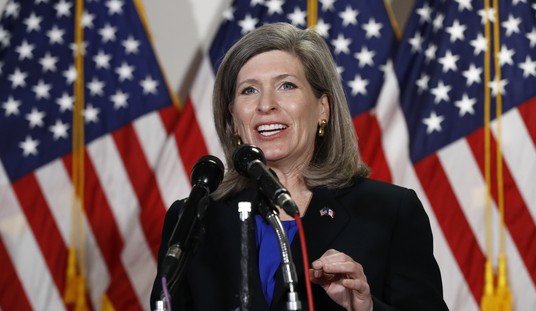The problem with this, as Dan Foster says, is that whoever ghost-wrote it doesn’t even try to sound like Trump. And how could they? How could you capture the classic Trumpian stream-of-consciousness rant on the page? The first half of the column would be spent on how great you’re doing in the polls, the second half would be spent on banalities about how unfairly everyone treats you, and before you knew it you’d have eight words left to say what you want to say. All politicians use ghost-writers but that’s no sweat for the average pol since their public persona and their written voice aren’t conspicuously different. In this case it’s night and day, so much so that Foster compares the disjunction to “breaking the fourth wall.” The author sounds so little like the man he purports to be that it yanks you out of the narrative and gets you thinking about the fact that it really is just a narrative. Which is a bad thing to have your reader thinking when you’re making a supposedly heartfelt pitch about un-rigging the system.
Here’s how I think this went down. Someone, probably Stephen Miller, wrote this up under his own byline but Team Trump realized that no one would notice an op-ed by Miller. Solution: Put Trump’s name on it instead. Everyone will notice that. Which is true — except they declined to tweak it to make it sound more like Trump, so the main way it’s being noticed today is people asking, “Um, who wrote this?” What they should have done is run it under Ivanka’s byline. Everyone likes her. It would have gotten plenty of attention. And unlike with dad, readers would have believed that she really can string together a series of calm, cogent thoughts in support of a larger thesis.
Mr. Cruz loudly boasts every time party insiders disenfranchise voters in a congressional district by appointing delegates who will vote the opposite of the expressed will of the people who live in that district…
While I am self-funding, Mr. Cruz rakes in millions from special interests. Yet despite his financial advantage, Mr. Cruz has won only three primaries outside his home state and trails me by two million votes—a gap that will soon explode even wider. Mr. Cruz loses when people actually get to cast ballots. Voter disenfranchisement is not merely part of the Cruz strategy—it is the Cruz strategy.
The great irony of this campaign is that the “Washington cartel” that Mr. Cruz rails against is the very group he is relying upon in his voter-nullification scheme.
My campaign strategy is to win with the voters. Ted Cruz’s campaign strategy is to win despite them.
Congrats to Miller or whoever on “it is the Cruz strategy,” which is a nice zinger. All “Trump” is really arguing here, though, is the by now familiar point that the party should nominate the candidate with a plurality of delegates. Supposedly that’s the sine qua non of a broken system — Trump, having failed to achieve 1,237 at the ballot box, should be declared the winner anyway despite the fact that the GOP’s rules, like the rules of the electoral college, require and have always required a majority. Why is it, incidentally, that we’ve only begun hearing that argument in the last few months if it’s such an egregious affront to democracy? I can sort of understand why people might think it was unrealistic and unfair to expect Trump’s organization to master minutiae of delegate selection in 50 different states. I think that’s stupid — why would you want a president who can’t even build an organization capable of that? — but there are a lot of rules and they’re complicated. The overarching rule, though, that it takes a majority of delegates to win rather than a plurality, is simple as can be. Did Team Trump raise any objections to that scheme before, say, February? And if we’re all about enfranchising voters, would Trump agree that we should do away with awarding bonus delegates to the winner of winner-take-all jurisdictions, a provision designed to make frontrunners — which normally means the establishment’s candidate — harder to catch? A more proportional system is a fairer system, right? Somehow I think he might not want that much fairness.
Here’s Mike Brzezinski marveling over Trump’s “must-read” op-ed and wondering whether it shows that he’s “pivoting” to a more sober, presidential image ahead of the general election. I think if that were true, this piece would have skipped all the Colorado nonsense and drilled down on the meat-and-potatoes of Trump’s appeal — immigration, protectionism, jobs. All this piece is is his standard whining about his electoral troubles as interpreted by a competent writer with a little populist treacle (the unfairness this fantastically wealthy celebrity faces mirrors the unfairness you face!) thrown in. Exit question via the clip: Why’d they choose to give this to the Journal instead of, say, the New York Post? The answer, I think, was simply to absorb a little gravitas by association. They wanted the political chaterati to pay attention so they stuck this in a “prestige” publication where they knew people like Brzezinski would ooh and ahh over it. Mission accomplished.








Join the conversation as a VIP Member